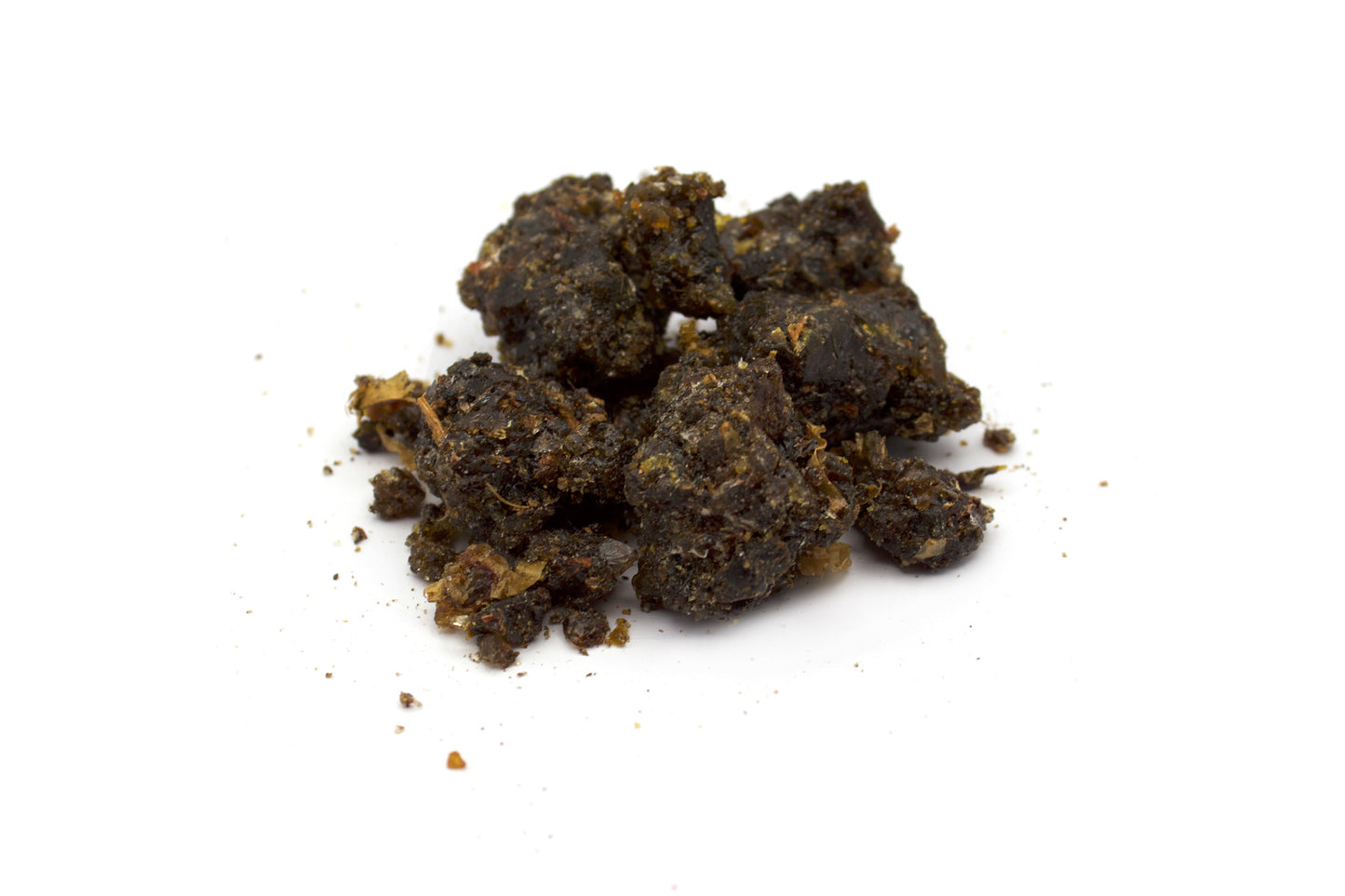1
/
of
2
Herbaldimensions.com
Guggul (Commiphora wightii)
Guggul (Commiphora wightii)
Regular price
£6.00 GBP
Regular price
Sale price
£6.00 GBP
Unit price
/
per
Tax included.
Shipping calculated at checkout.
Couldn't load pickup availability
Share
Common Name: Guggul
Botanical Name: Commpiphora wightii (syn. mukul)
Family: Burseraceae
Origin: India
Part: Oleo-gum-resin
Form: Chunks
Guggul is a fragrant oleo gum-resin extracted from the tree Commpiphora wightii (syn mukul), a member of the family Burseraceae and in the same genus as Myrrh.
The native range of this species is S. Arabian Peninsula, S. Pakistan to W & Central India. It is a shrub and grows primarily in the desert or dry shrubland biome.
Guggul has been used as an incense in religious ceremonies in India, as a fixative in perfumery and has been used for millennia in Ayurvedic medicine in much the same way that Myrrh has been.




